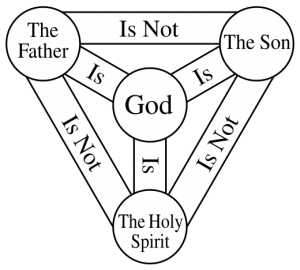Yesterday afternoon, acting on a recommendation by evolutionary biologist Jerry Coyne, I sat down and listened to a 43-minute Scientific American podcast featuring Stanford biology professor and hard determinist Robert Sapolsky being interviewed by Robert Mirsky, on the topic, “Your brain, free will and the law.” Suffice to say that I was underwhelmed. I had high expectations, as Professor Sapolsky is not only a well-published author (whose most recent work is Behave: The Biology of Humans at our Best and Worst), but also a professor of biological sciences, neurology and neurological sciences at Stanford University and a research associate at the National Museums of Kenya. I was both disappointed and amused with what I heard: disappointed with the complete absence of any rigorous argument against the existence of free will, and amused by the fake history related by Sapolsky, in the course of his interview with Robert Mirsky. By the way, for those readers who are looking for a critique of the doctrine of free will that’s both hard-hitting and substantive, I’d recommend the online writings of physicist Sabine Hossenfelder – in particular, her articles, How to live without free will, Free will is dead, let’s bury it and The Free Will Function: Free will from the perspective of a particle physicist (but see also the conclusion to her prize-winning 2018 essay, The Case for Strong Emergence, in which she acknowledges a gap in her argument). [Full disclosure here: I have previously critiqued Dr. Hossenfelder’s arguments against free will, and although I continue to find her case less than convincing, I would now acknowledge her general point that top-down causation alone won’t rescue free will.]
Back to Sapolsky. Since he’s a professor of biology, neurology and neurosurgery, I had hoped that he would at least attempt to summarize the biological case against free will, but he didn’t. He alluded to experiments by Benjamin Libet, noted in passing that there were multiple interpretations of these experiments, and then proceeded to his central argument: the “shrinking pie” argument, which relied on a very heavy dollop of fake history. In a nutshell: science has already shown that we are not responsible for X, Y and Z, so in time, science will show that we are not responsible for any of our actions. (By the way, Sapolsky is a hard determinist, who has no time for compatibilism and who eschews any notions of personal responsibility for our actions: as he puts it in his podcast, “We have no control, ultimately, over anything we do… We have no agency, and the criminal justice system does not make any sense at all.”)
So, what’s wrong with the “shrinking pie” argument? Everything.
Continue reading →






